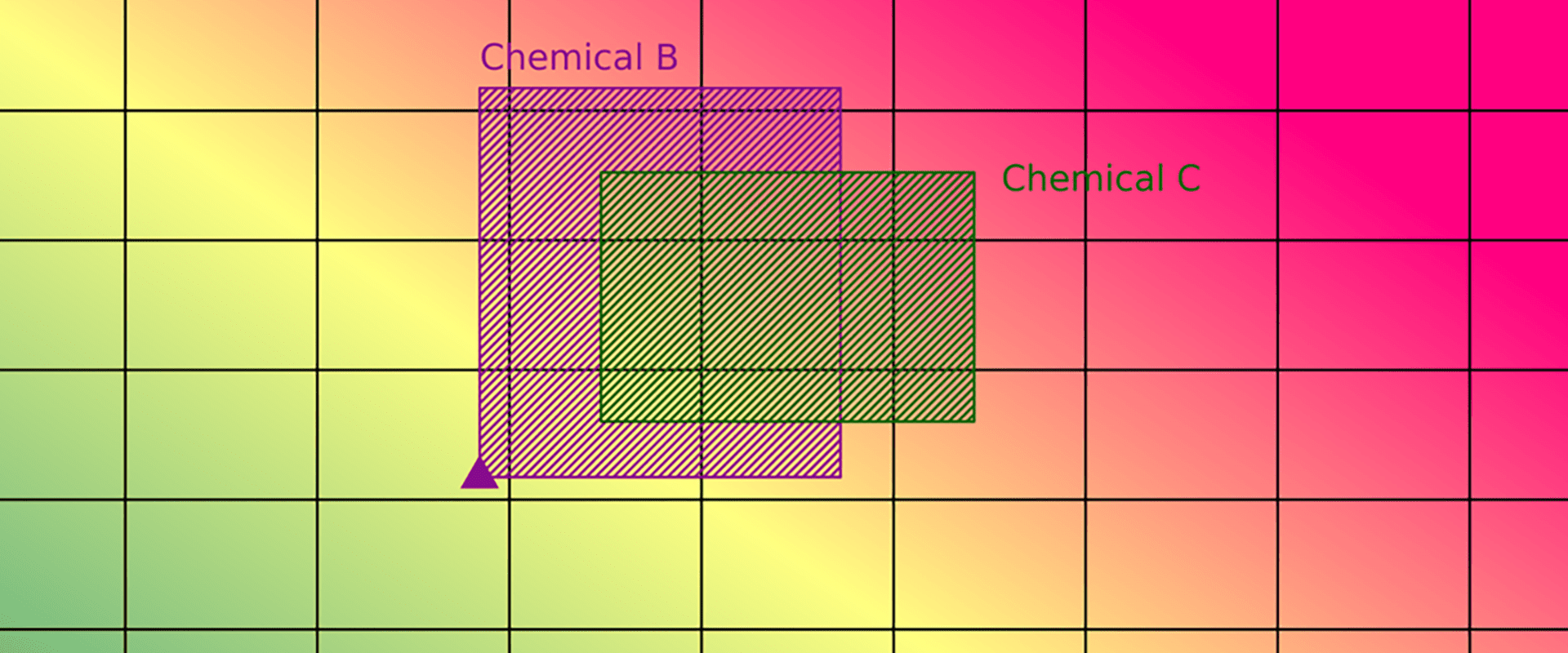HESI gave several presentations at Eurotox 2013.
HESI Presentations at the 49th Congress of the European Societies of Toxicology
September 2, 2013 – September 4, 2013
Interlaken, Switzerland

The committee’s mission is to promote a transparent, purpose-driven, structured approach to risk assessment based on key principles, including problem formulation, tiered integration of both hazard and exposure at each step, and fit for purpose.
Version 2.0 of the RISK21 webtool is now available. To access the RISK21 webtool, please visit risk21.org.
The Committee contracted out the development of a database of information necessary to estimate pesticide exposure (and obtain parameters for exposure models) in Brazil. Pesticide use and application information are being extracted from the Brazilian Health Regulatory Agency (ANVISA) monographs and from Agrofit, Brazil’s pesticide registration tool, and pulled into an easily searchable, publicly accessible database.
A project advisory team is monitoring and supporting the project, which is expected to be completed in the first quarter of 2023.
A tool developed to inform pesticide residues in food in Argentina was funded and developed for SENASA. It resulted from a partnership between HESI, Buenos Aires and Austral Universities, and SENASA. A manuscript co-authored by all partners and featuring this effort will be developed in the coming year.
Initiated discussion to explore how to better harmonize pesticide labels by:
Discussions have been initiated to improve both the RAFT tool and RISK21 matrix and make them more user-friendly.

Michelle Embry received her PhD in Toxicology in 2004 and her BS in Biology and Environmental Science and Policy in 1998 from Duke University. She is currently the Deputy Director of Environmental Science at HESI, where she provides leadership, technical direction, and guidance to varied, multi-stakeholder, collaborative committees on topics related to risk assessment and environmental protection worldwide.
Prior to joining HESI in 2006, Dr. Embry worked as an Ecological Risk Assessor at the US EPA’s Office of Pesticide Programs. She has expertise in both human health and ecotoxicology, with an emphasis on integrated approaches and alternative methods. Her current project portfolio includes the Animal Alternatives in Environmental Risk Assessment Committee and the Development of Methods for a Tiered Approach to Assess Bioaccumulation of Chemicals Committee, two of HESI’s projects aimed at improving ecological risk assessment. Dr. Embry’s work also includes the Risk Assessment in the 21st Century (RISK21) Committee, which developed a scientific, transparent, and efficient approach for human health risk assessment, including a web-based tool that has led to outreach and training activities on risk assessment approaches worldwide. In addition, she works with HESI staff and partners on project development related to chemical risk assessment issues.
Dr. Embry is an elected member of the SETAC North America Board of Directors (2014 to present), chair of the SETAC Global Partners Advisory Committee, and a member of the SETAC Bioaccumulation and Animal Alternatives Advisory Group Steering Teams. She is a full member of the Society of Toxicology (SOT) and a member of the SOT Risk Assessment and Mixtures Specialty Sections. She was a member of the ECETOC Task Force on Information to be Considered in a Weight-of-Evidence-Based PBT/vPvB Assessment of Chemicals (Annex XIII of REACH) in 2013 to 2014 and was a steering team member of the SETAC Adverse Outcome Pathway (AOP) Pellston Workshop (Spring 2017). Dr. Embry is also one of the founding partners on the “eco data hub” initiative, started in Fall 2016.

Sandrine Deglin joined HESI in 2018 as a Scientific Program Manager. Prior to joining HESI, she worked with the Environmental Public Health Program at the State of Alaska Division of Public Health for four years, where she managed the program for nearly two years. Prior to that time, Dr. Deglin spent seven years as a consultant in the Toxicology and Mechanistic Biology Group of Exponent, Inc.
Dr. Deglin holds a PhD in Applied Chemistry and an MS in Environmental Sciences and Engineering from the Colorado School of Mines. While studying in France, she also received a MS in Chemistry and a postgraduate degree in Public Health. Dr. Deglin is interested in all aspects of environmental health, including chemical fate and transport, toxicology, epidemiology, risk assessment, food safety and food security, and risk communication. She is currently involved in the HESI Bioaccumulation, Environmental Epidemiology, RISK21, UVCB, and Transforming the Evaluation of Agrochemicals (TEA) Committees.
September 2, 2013 – September 4, 2013
Interlaken, Switzerland
HESI gave several presentations at Eurotox 2013.
Critical Reviews in Toxicology, 2017
The Health and Environmental Sciences Institute (HESI) Risk Assessment in the 21st Century (RISK21) Committee was initiated to address and catalyze improvements in human health risk assessment. RISK21 is a problem formulation-based conceptual roadmap and risk matrix visualization tool, facilitating transparent ...
Critical Reviews in Toxicology, 2016
The Health and Environmental Sciences Institute (HESI) has developed a framework to support a transition in the way in which information for chemical risk assessment is obtained and used. The approach is based on detailed problem formulation, where exposure drives the data acquisition process in order to enable informed ...
Critical Reviews in Toxicology, 2016
When the human health risk assessment/risk management paradigm was developed, it did not explicitly include a “problem formulation” phase. The concept of problem formulation was first introduced in the context of ecological risk assessment (ERA) for the pragmatic reason to constrain and focus ERAs on the key questions. ...
Critical Reviews in Toxicology , 2015
The HESI-coordinated RISK21 roadmap and matrix are tools that provide a transparent method to compare exposure and toxicity information and assess whether additional refinement is required to obtain the necessary precision level for a decision regarding safety.
Critical Reviews in Toxicology, 2015
The HESI RISK21 Committee has developed a framework supporting the use of 21st century technology in obtaining and using information for chemical risk assessment.
Critical Reviews in Toxicology, 2014
The RISK21 integrated evaluation strategy is a problem formulation-based exposure-driven risk assessment roadmap that takes advantage of existing information to graphically represent the intersection of exposure and toxicity data on a highly visual matrix.
hesi@hesiglobal.org
Phone: +1-202-659-8404
Fax: +1-202-659-3859
740 15th Street NW, Suite 600
Washington, DC 20005
Sign up for our monthly e-newsletter.